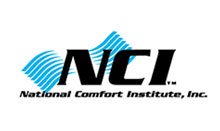The primary focus of most homeowners in the winter is to keep their house warm. However, heat and comfort don’t always go hand-in-hand and feeling cozy requires more than just the right temperature. The freshness and relative humidity of indoor air play a major role in the health and comfort of family members during the winter, explains Jim Woolley, owner of Central Heating & Air Conditioning in Atlanta .
With windows and doors closed and the furnace running, both humidity and freshness suffer in the winter.
“If too little outdoor air enters a home, pollutants can sometimes accumulate to levels that pose health and comfort issues,” says Woolley. “Controlling dry air is also essential to health and comfort in the winter. Air that is not properly humidified can dry out eyes, noses, skin and throats.”
Many viruses also prefer dry conditions, so it’s easier to get sick in a home with low relative humidity. Remedying these common winter problems often requires an HVAC professional.
Invite Fresh Air Inside This winter with Proper Ventilation
While newer homes are better than ever at keeping heat inside, this improved efficiency could be coming at the cost of comfort, explains Woolley. Outdoor air enters and leaves a house in three ways: infiltration, natural ventilation, and mechanical ventilation.
Infiltration is when air enters the home through unsealed joints, cracks in floors and leaky windows. Because it is the uncontrolled exchange of indoor and outdoor air, it can be costly during heating and cooling seasons. To remedy this problem, home builders now construct houses that are much tighter. This is a great way to reduce energy bills, but it also restricts air flow in the home. Mechanical ventilation is often needed to improve indoor air quality when tight houses are closed up in the winter. In fact, many building codes around the country require that newly constructed homes meet certain ventilation standards.
Mechanical ventilation includes exhaust fans that intermittently remove air from a single room, such as bathrooms and kitchens, as well as whole-home ventilation units. Whole-home products use air handling systems, fans and duct work to exchange stale air for fresh air. Introducing fresh air through the use of a whole-home ventilator is one of the most efficient ways to improve indoor air quality all year.
“Older homes also suffer from poor indoor air quality,” says Woolley. “The addition of new windows and siding to a sturdy-built home can seal it up tight, creating the same IAQ issues we see in newer homes.”
Aprilaire offers a whole-home ventilation option that is programmed to bring fresh air into the home based on a multiple factors, including outside temperature. This allows the exchange of air to occur when it is the most economical to do so, providing fresh air without driving up energy costs.
Protect Your Home and Family from Dry Air
Another component of protecting your house and family this winter is controlling humidity. In addition to reducing virus transmission, relative humidity also plays a role in preserving the possessions in your home.
“Dry air causes walls, woodwork and hardwood floors to crack,” says Woolley. “Electronics can also fall victim to static electric electricity charges, requiring expensive repair or replacement.” While there are different humidifiers for different types of homes and needs, a whole-house humidifier is the best solution for a home with a forced-air furnace.
“But there are other options as well. For example, Steam humidifiers, can be installed in any home even without forced air ductwork and still provide the capacity for the entire home. The bottom line, is that whole-home systems deliver proper humidity levels throughout your entire home and require simple, inexpensive and infrequent maintenance once a year,” says Woolley.



















